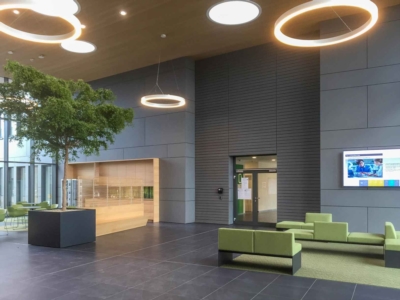




NOV. 2018 | PROPOSED BY OUR PARTNER ING LUXEMBOURG
You own a property and want to rent it? You have invested in real estate and want to make your investment as quickly as possible? You plan to transform your house to rent a part? Whatever your situation, ask yourself the right questions before thinking about renting your property.
1. Have you benefited from the tax credit on notarial deeds?
In order to reduce the costs associated with the purchase of housing, the Luxembourg Government has provided for a tax credit on notarial deeds , to be applied to the registration and transcription fees ( Bellegen Akt ). It is immediately applicable when signing the deed of sale and limited to € 20,000 (€ 40,000 in case of joint acquisition).
The granting of this tax credit is subject to certain conditions. You must actually occupy the accommodation acquired for at least two years, and this in an uninterrupted manner. During this period, you are forbidden to rent all or part of the property or to use it for other purposes. If you do not comply with these conditions, you will be obliged to repay the allowance granted in full.
2. Is your Energy Performance Certificate still valid?
When you became an owner, you received an Energy Performance Certificate (EPC). This certificate provides information on the calculated energy requirement of the building and on CO 2 emissions. It provides energy performance classes ranging from the best (A) to the worst (I). It is established by experts for residential buildings (architects or consulting engineers members of the Order of Architects and experts approved by the Minister of the Economy).
The energy performance certificate is valid for 10 years. After this period, you will have to order another one at your expense from an approved expert if you want to rent your property. Any prospective tenant has the right to ask you to consult the energy performance certificate.
3. How to establish the best price?
You can not do what you want with rent. Luxembourg law provides for a ceiling on rents. For an unfurnished property, the maximum rent is determined on the basis of the money actually invested in housing (it can not exceed 5% of the invested capital), the evolution of the cost of living and the devaluation of the currency, but also the seniority of housing.
Before setting the price of your rent, you must also inform you about the rental market in your city or region. What is the range of rents for properties similar to yours? Are rents going up or down? To get a good idea of the supply and demand in Luxembourg, it is best to consult the website of the Observatoire de l'Habitat . This organization regularly publishes information on the prices offered for rent.
4. What to choose: renting bare or furnished?
If you choose a furnished rental, the rent can in no case exceed double the legal rent of the unfurnished housing. It is also a function of the value of the furniture lining the rented premises. Furthermore, the furnished apartment must be fully equipped. You can not limit yourself to a bed, a table and a chair. Your lease must also include an inventory of the furniture provided to the tenant.
Furnished rentals have two advantages over bare rental. It is usually short-lived. Furniture may be depreciated and deducted from rental income subject to taxation.
5. Have you considered the taxation of rental income?
Any resident, or considered as such, who owns a property rented in Luxembourg or abroad, is subject to tax obligations. The taxable base consists of the rents collected, less the costs of obtaining. These deductible expenses include, but are not limited to, maintenance and repair costs, unreimbursed acquisition costs, depreciation, interest expense and stewardship fees.
Rental income is taxed at your overall tax rate. If the net income from the rental of goods is negative (the deductible expenses are greater than the revenue), it is offset against the net income of your other income categories (business income).
For more information, please visit www.ing.lu/immo or visit us at the branch.
Find new expert advice Every Tuesday.
Every Tuesday.